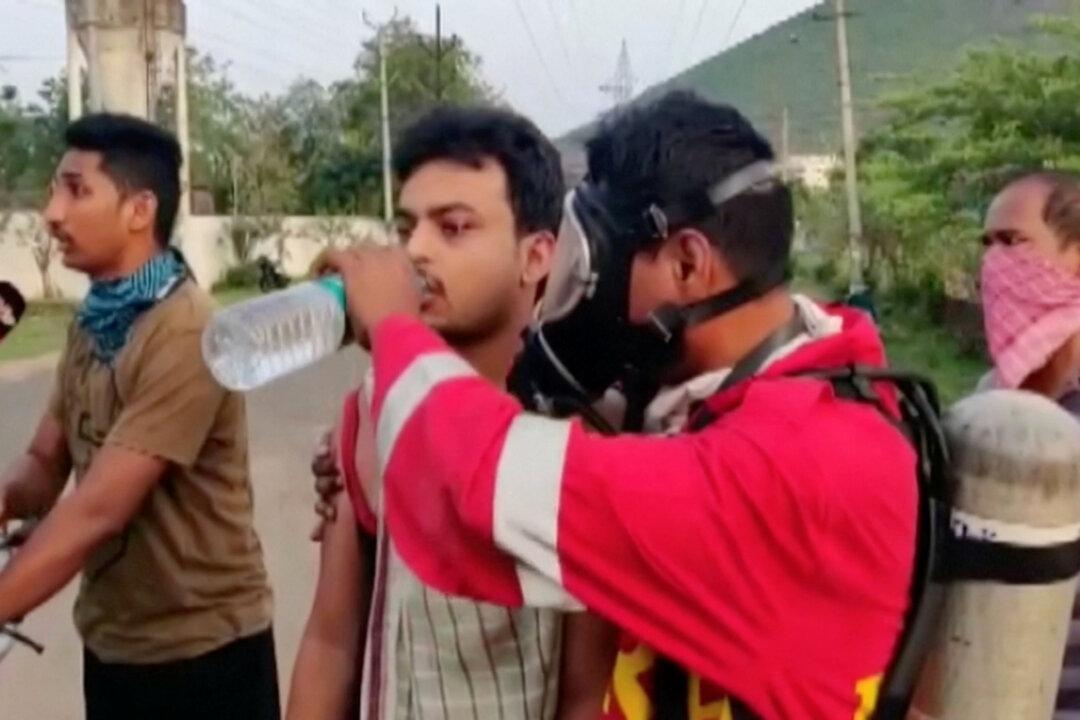CHENNAI—A chemical gas leak at an LG Polymers plant in southern India on May 7 killed at least nine people, and emergency services rushed more than 300 to the hospital and evacuated hundreds more from nearby areas, a police official in Andhra Pradesh state said.
South Korean battery maker LG Chem Ltd., the owner of the facility, located about 14 kilometers away from Visakhapatnam city, said the gas leak had been brought under control.





